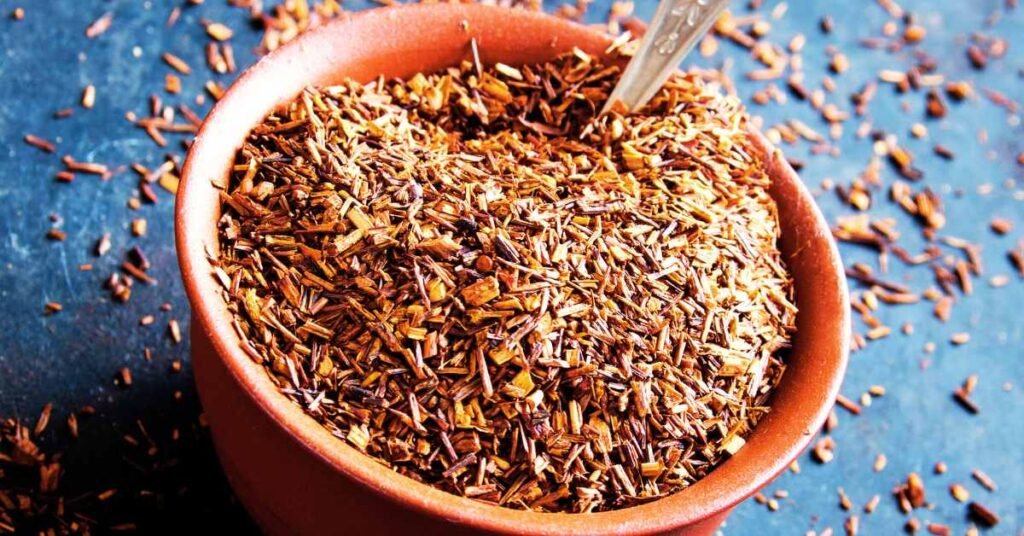Honeybush tea, derived from the Cyclopia plant native to South Africa, has gained popularity in recent years for its unique flavor profile and numerous health benefits.
As a caffeine-free herbal tea, honeybush offers a delicious alternative to traditional teas, along with a range of potential health advantages.
In this article, we’ll delve into the origins, cultivation, flavor profile, and health benefits of honeybush tea, providing a comprehensive guide for tea enthusiasts and health-conscious individuals alike.
Origins and Cultivation
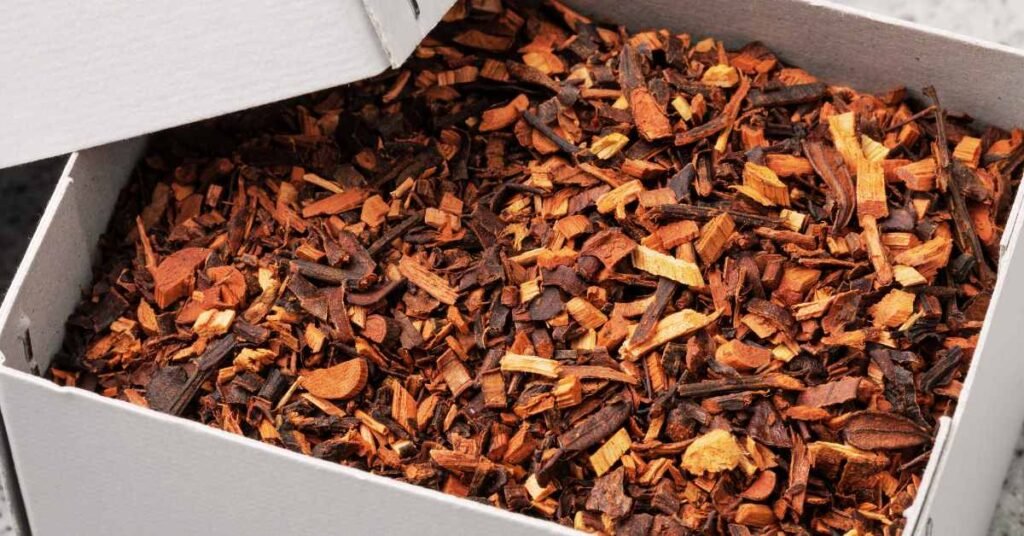
Honeybush (Cyclopia spp.) is a flowering shrub belonging to the legume family, Fabaceae.
The plant is primarily found in the mountainous regions of South Africa, particularly in the Western and Eastern Cape provinces.
The name “honeybush” is derived from the honey-like scent emitted by the flowers of the plant.
Honeybush tea, derived from the Cyclopia plant native to South Africa, has gained popularity in recent years for its unique flavor profile and numerous health benefits.
As a caffeine-free herbal tea, honeybush offers a delicious alternative to traditional teas, along with a range of potential health advantages.
In this article, we’ll delve into the origins, cultivation, flavor profile, and health benefits of honeybush tea, providing a comprehensive guide for tea enthusiasts and health-conscious individuals alike.
Origins and Cultivation
Honeybush (Cyclopia spp.) is a flowering shrub belonging to the legume family, Fabaceae.
The plant is primarily found in the mountainous regions of South Africa, particularly in the Western and Eastern Cape provinces.
The name “honeybush” is derived from the honey-like scent emitted by the flowers of the plant.
Cultivation of honeybush involves careful attention to the natural habitat of the plant.
The shrub thrives in well-drained, acidic soils with minimal water requirements.
Local farmers in South Africa have been cultivating honeybush for centuries, passing down traditional knowledge and sustainable farming practices from one generation to the next.
Harvesting and Processing
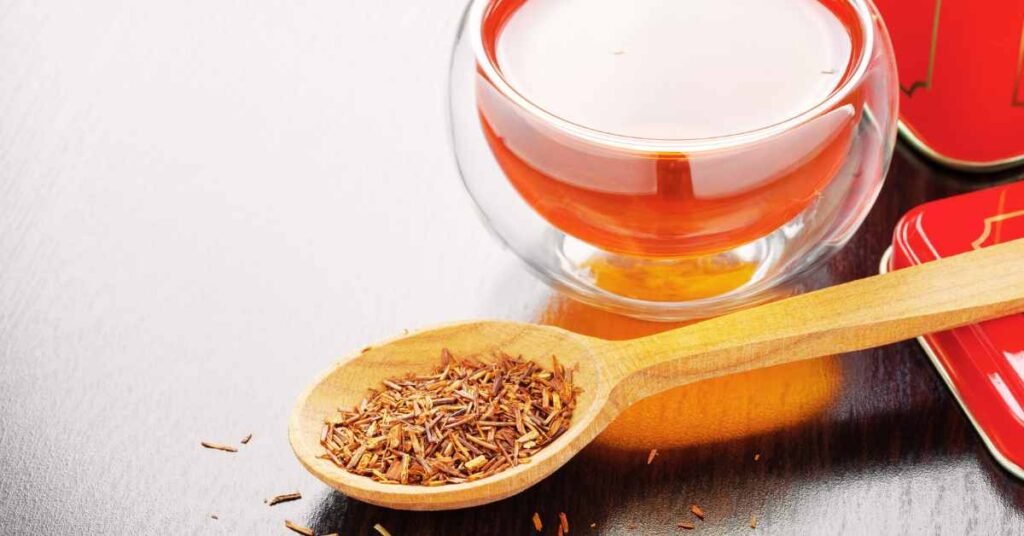
The leaves and stems of the honeybush plant are harvested for tea production.
The harvesting process is typically carried out during the flowering season when the plant’s essential oils are at their peak.
After harvesting, the leaves and stems undergo a fermentation and drying process, which gives honeybush tea its distinct flavor and aroma.
Flavor Profile
Honeybush tea is celebrated for its naturally sweet and slightly woody flavor, making it a delightful beverage both hot and cold.
The infusion produces a reddish-brown hue, reminiscent of rooibos tea. The honey-like undertones create a pleasant and soothing experience for tea enthusiasts, without the need for added sweeteners.
Health Benefits
Antioxidant Properties:
Honeybush tea is rich in antioxidants, including polyphenols and flavonoids.
These compounds help combat oxidative stress in the body, potentially reducing the risk of chronic diseases and supporting overall well-being.
Immune System Support:
The antioxidants present in honeybush tea contribute to a strengthened immune system.
Regular consumption may help the body fend off infections and illnesses, promoting a healthy and resilient immune response.
Anti-Inflammatory Effects:
Some studies suggest that honeybush tea may possess anti-inflammatory properties, potentially aiding in the management of inflammatory conditions such as arthritis.
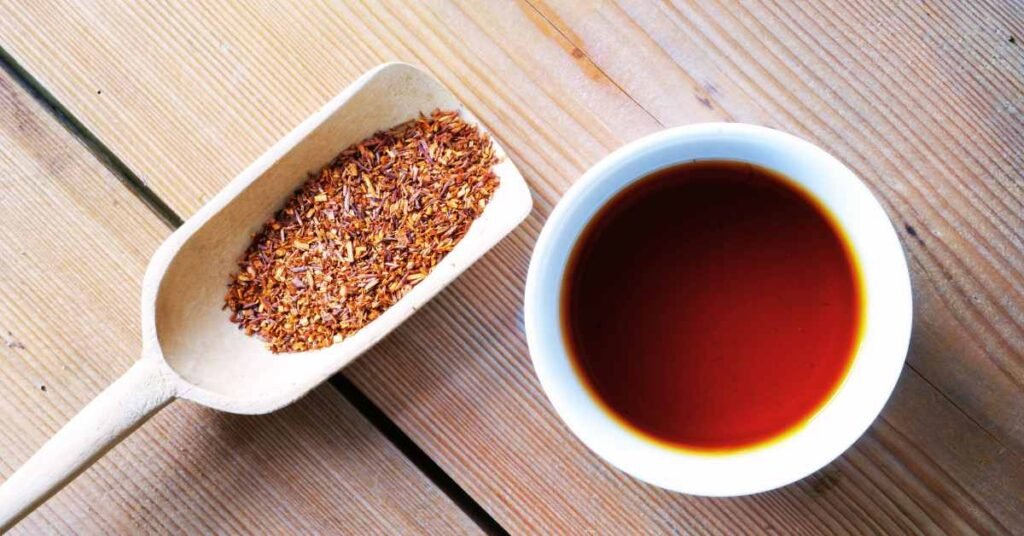
Regular intake may contribute to a reduction in inflammation and associated symptoms.
Respiratory Health:
Traditional uses of honeybush tea include its application for respiratory ailments.
The tea’s natural expectorant properties may help alleviate symptoms of coughs and colds, providing relief to individuals with respiratory issues.
Digestive Health:
Honeybush tea is believed to support digestive health, offering relief from indigestion and bloating.
The tea’s soothing properties may help alleviate gastrointestinal discomfort, making it a suitable choice for those with sensitive stomachs.
Caffeine-Free Alternative:
Unlike traditional teas such as black or green tea, honeybush tea is naturally caffeine-free.
This makes it an excellent option for individuals looking to reduce their caffeine intake without sacrificing flavor or the ritual of tea consumption.
Cultural Significance
Honeybush tea holds cultural significance in South Africa, where it has been used for centuries by indigenous communities for its medicinal properties.
The tea is often consumed during communal gatherings and is considered a symbol of hospitality and community.
The sustainable cultivation and harvesting of honeybush also play a vital role in preserving local traditions and supporting rural economies.
Final Word
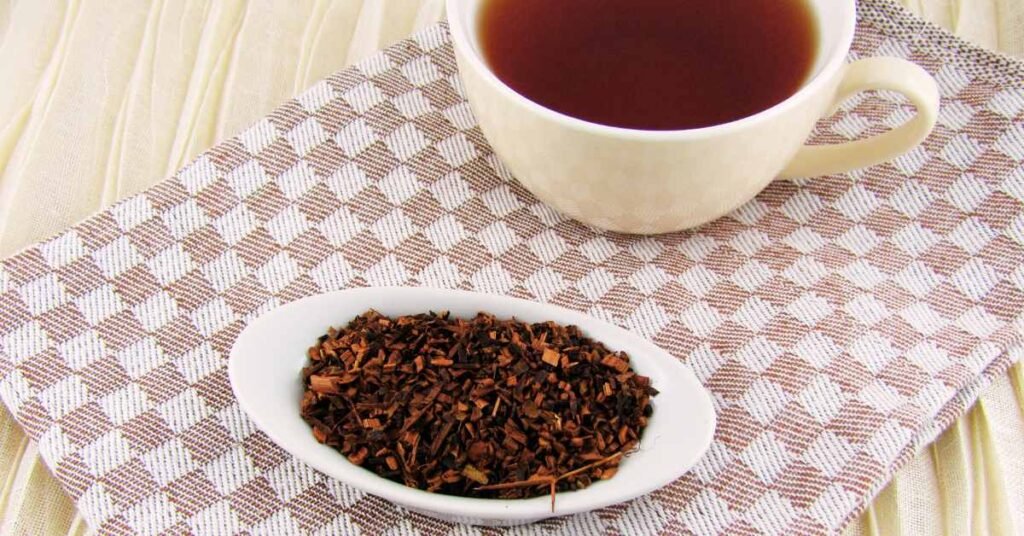
Honeybush tea, with its rich history, unique flavor profile, and myriad health benefits, stands out as a valuable addition to the world of herbal teas.
As interest in diverse tea options continues to grow, honeybush offers a caffeine-free alternative that not only satisfies the taste buds but also provides potential health advantages. Whether you’re a tea enthusiast or someone exploring the world of herbal infusions, honeybush tea is undoubtedly a delightful and healthful choice worth exploring.
MEDICAL DISCLAIMER
Itsnevernotteatime.com cannot and does not contain medical/health advice. The medical/health information is provided for general and educational purposes only and is not a substitute for professional advice.
